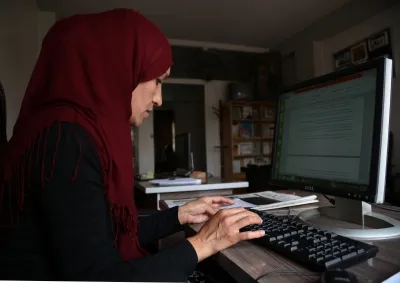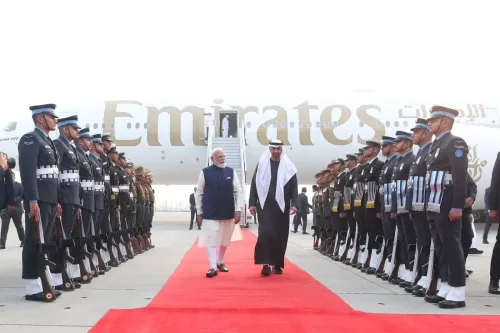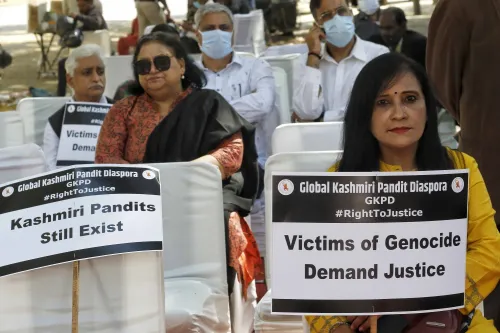Why Are Exiled Afghan Journalists Urging the International Community to Stop Forced Deportations from Pakistan?

Synopsis
Key Takeaways
- Exiled Afghan journalists are facing forced deportation in Pakistan.
- There is an urgent call for international humanitarian support.
- The risk of deportation threatens press freedom and human rights.
- Activists warn of a potential humanitarian crisis.
- The UNHCR stresses the need to protect vulnerable Afghan refugees.
Kabul, Aug 10 (NationPress) Exiled journalists from Afghanistan currently residing in Pakistan have urgently called for an end to forced deportations. They appealed to international media organizations and human rights advocates for both protection and humanitarian assistance, according to reports from local media.
After fleeing to Pakistan following the Taliban's takeover, thousands of Afghan journalists now face the looming danger of forced deportation. Many find themselves in a precarious situation, anxiously awaiting relocation to the United States or Europe.
On August 9, these journalists emphasized the need for immediate action from the Pakistani government, media advocacy organizations, and international entities, as reported by Afghanistan-based Khaama Press. This statement follows Pakistan's recent cessation of visa extensions and an uptick in the arrests and deportations of Afghan refugees.
Many journalists, including women and children, are enduring constant fear, with some forced to seek refuge in the streets or unfamiliar locations where their safety is at risk. They stressed that any deportations must adhere to international human rights standards and ensure that no individual is sent back to Afghanistan.
Activists in the media realm cautioned that ongoing arrests and deportations could lead to a humanitarian crisis that would severely undermine press freedom and jeopardize the safety of Afghan journalists. The risk of forced returns has surged as legal pathways have been obstructed and visa renewals have been denied.
These activists argue that such deportations not only threaten lives but would also deliver a significant blow to the freedom of expression in Afghanistan. The exiled journalists are urging the international community to act swiftly, warning that inaction could have irreversible consequences for human rights and press freedom in the nation.
Earlier this week, the United Nations High Commissioner for Refugees (UNHCR) urged Pakistan to cease deportations of at-risk Afghan refugees, highlighting that forced repatriation, especially of women, girls, and those with medical conditions, could infringe upon fundamental human rights.
The UNHCR expressed grave concern regarding Pakistan's decision to deport Afghan refugees with temporary residence permits, demanding that vulnerable individuals receive protection, as reported by Khaama Press. In its statement, it called upon the Pakistani government to refrain from deporting Afghans needing international protection and underscored the dangers faced by women and girls.
Moreover, the UN refugee agency urged Pakistan not to deport students and those with health issues, given their vulnerability and necessity for ongoing support.
This UNHCR statement follows Pakistan's Ministry of Interior announcing that the repatriation of Afghan nationals holding Proof of Registration (PoR) cards who do not choose to return voluntarily will commence on September 1. The notification from the Ministry indicated that voluntary repatriation for PoR cardholders would begin immediately, while the mandatory repatriation of other Afghan individuals is set to begin on September 1, according to local media.










